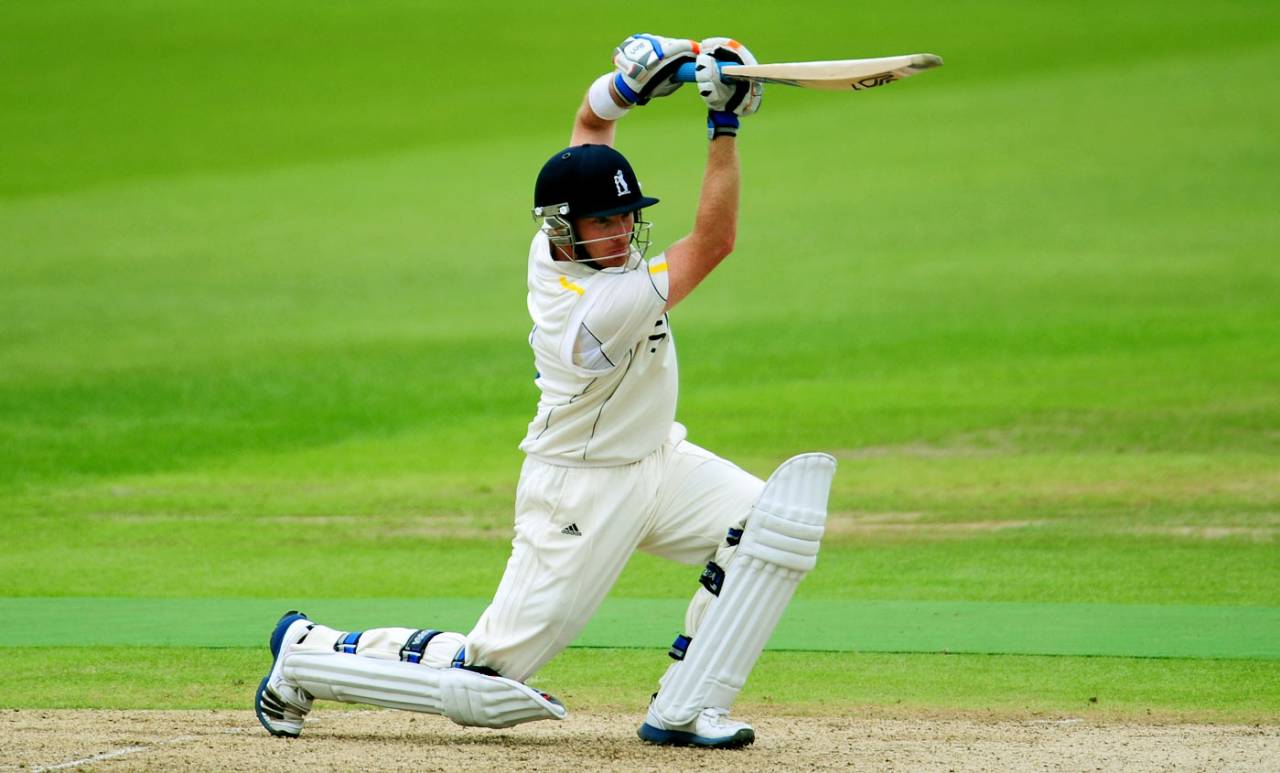What will Ian Bell's legacy be?
He always made the difficult look easy and rarely got the recognition his batting deserved. The difficulty of replacing him may determine his worth
Jon Hotten
26-Aug-2015

Ian Bell: swan-like • Getty Images
"Happiness writes white," the old maxim goes. For me at least, so has Ian Ronald Bell done: there has been something frictionless about his long career, something hard to grasp. Even the news that he is to spend the next few weeks in contemplation of retirement seems strangely ambivalent. It's a very Ian Bell thing to do.
He has always been one of those players who made something very difficult look easy. It is his cross to bear. His struggles, physical or psychological, remain subterranean, hidden beneath the glossy and implacable exterior. Even the failures will often include a single boundary fizzed so effortlessly past the field that his bat barely appears to have moved from the perpendicular. Bell has glided through his career like a swan on a river, leaving just the slightest of ripples on the water behind. What will we think of him when he's gone?
He is still only 33, but there are miles on the clock. He first toured with England in 2001-02 and even before that, as a 16-year-old, he was the next big thing. It is perhaps not a decline in talent so much as in the will to keep going. Since the last Ashes in England, in which he made three hundreds, he has played in six series and in them averaged 26.11, 34.25, 42.42, 31.00, 10.75 and 26.87 - all are under his overall mark of 43.00. The move to No. 3 for the Edgbaston Test brought the briefest of spikes. He never quite seemed able to summon the thrumming energy that trailed Joe Root to the crease, nor the unadulterated concentration of his old compadre Alastair Cook. Both were once there.
That pair of half-centuries in Birmingham showed some symmetry with his first Ashes win in 2005. Then he wore Warne's nickname of "The Sherminator" like a black eye and was comprehensively eclipsed as a new star of England batting by Kevin Pietersen. Famously, his next eight Test centuries were scored in innings during which at least one other England player also passed three figures.

Bell scraps in Cape Town•Getty Images
The glide through his career had begun, and it's a reputation he has found hard to shake despite the tough runs he has made. Again, all of those - the hundred in Durban and match-saving 78 in Cape Town in 2009-10, the dazzling year and a half of batting that followed - were compiled so silkily it was easy to forget how hard it probably was. The Hot Spot camera appeared to have been invented for Bell in top form - not to adjudicate on his dismissals but to show again and again the ball leaving a perfect white circle in the dark centre of his blade.
The lo-fi hiss of frustration accompanies his decline. He has never been a demonstrative man. A poor dismissal might induce a brief stare at the heavens or a flip of the bat, but he's not a puncher of lockers, a smasher of windows. Getting out, like being in, is just another part of the job. Even in his prime as a batsman he was never seriously considered as a captain (at least as far as we know) and his nominal vice-captaincy has now been ceded to Joe Root. Did he care when it went? As usual with Ian Bell, it was impossible to tell.
His career will span those of Pietersen and Cook, three pillars of a decade of English batting. He seems to skate the line between the two without the vast highs and destructive lows of Pietersen or the relentless hunger of Cook. His most telling legacy, aside from the shimmering summer visions of his cover drive, will be the Bell-shaped hole he'll leave behind. The difficulties of replacing him may finally determine his worth. Until that time he remains somehow unreachable, and not entirely understood.
Jon Hotten blogs here. @theoldbatsman